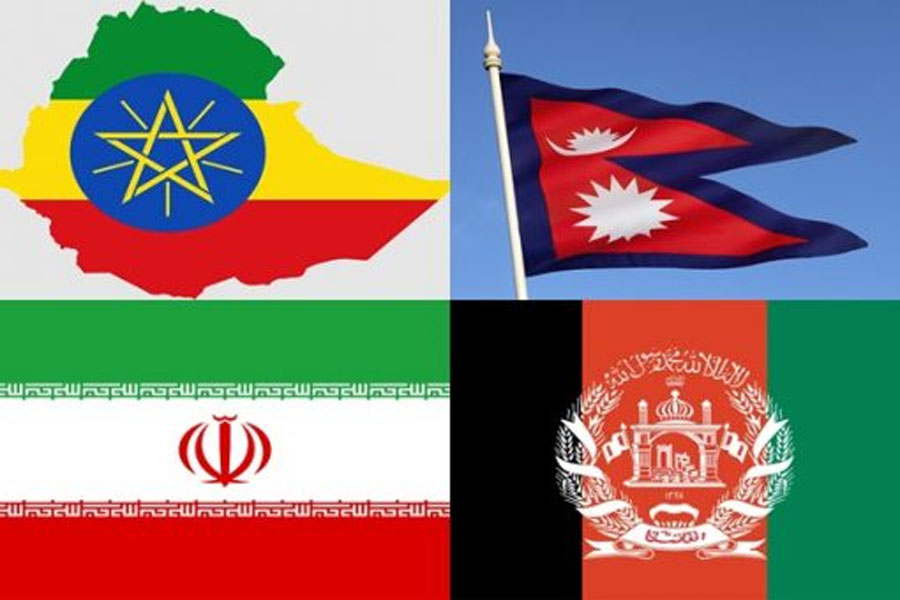metro
Lagos govt shut down hospital for transfusing unscreened blood to patients

Lagos govt shut down hospital for transfusing unscreened blood to patients
The Lagos State Government has shut a private hospital at Ago-Okota in Oshodi-Isolo Local Government Area, for collecting and transfusing unscreened and unlabelled blood to unsuspecting patients.
Dr Bodunrin Osikomaiya, the Executive Secretary, Lagos State Blood Transfusion Service (LSBTS), said this in a statement signed by Tunbosun Ogunbanwo, Director, Public Affairs, state Ministry of Health, on Sunday in Lagos.
Osikomaiya said the LSBTS in collaboration with the state Health Facilities Monitoring and Accreditation Agency (HEFAMAA) sealed the facility following a tip-off from a concerned citizen.
“Following the tip off, and after thorough investigations, the enforcement teams of LSBTS and HEFAMAA, during their joint monitoring exercise in the area, visited the facility and confirmed to be true, the unwholesome, unprofessional and unethical medical practices and conduct of the hospital management,” Osikomaiya said.
She added that the facility was shut for contravening the blood transfusion service law and for unethical and unprofessional medical practice, as well as putting the lives of unsuspecting citizens at risk.
READ ALSO:
- Ecuador elects youngest-ever president, Daniel Noboa, to fix ‘destroyed’ country
-
Again, Pope calls for the release of Hamas hostages in Gaza Strip
-
NDLEA seizes N80m worth of drugs, arrests 134 suspects in Q3
“The law states that no person within Lagos State shall transfuse blood into a patient unless such blood has been screened, tested, labeled by the state blood transfusion committee, and found to be negative for all transmissible diseases including HIV I and II, Hepatitis B and C, Syphilis and any other disease as may be deemed necessary by LSBTS,” she said.
Osikomaiya said the details of the blood donors and transfusion recipients had been retrieved from the management of the hospital.
She noted that patients who were transfused with the unscreened units of blood at the facility were being traced as part of protocol to ascertain their clinical health status and ensure their safety.
Osikomaiya stressed that the management of the hospital and workers found culpable in the unwholesome act would be prosecuted in accordance with appropriate laws.
She the agency had rejigged its strategies in sanitising the state against unethical blood transfusion practices and continued to wage war against unwholesome practice of transfusing unscreened blood in the state.
Osikomaiya appealed to citizens to support the war against unwholesome blood transfusion service by reporting infractions and unwholesome practices when they see any.
She also implored health workers and stakeholders involved in the blood transfusion chain, including blood banks, blood donation centres, and logistics firms to adhere strictly to WHO regulations and the state Blood Transfusion laws on blood donation, collection and transfusion.
“This war against unwholesome blood transfusion practices involves and affects every citizen, and as a result, the LBTS will step up the tempo through continuous monitoring of all facilities concerned with blood transfusion,” she said.
Osikomaiya said this would ensure a safe and wholesome blood transfusion chain and guarantee the safety of all citizens residing in the state.
Lagos govt shut down hospital for transfusing unscreened blood to patients
metro
Lagos govt clears traders from rail tracks at Bolade, Oshodi

Lagos govt clears traders from rail tracks at Bolade, Oshodi
The Lagos State Government has removed traders operating on the rail tracks at Bolade, Oshodi, following a viral video that raised concerns about public safety.
The announcement was made by Tokunbo Wahab, Lagos State Commissioner for Environment and Water Resources, on Monday.
The clearance was done in collaboration with the Nigerian Army from the nearby Ikeja Cantonment.
Wahab’s statement read: “Following the viral video on social media, we’ve removed traders from the rail tracks at Bolade, opposite Arena Shopping Complex, in collaboration with Nigerian Army personnel from Ikeja Cantonment.”
READ ALSO:
- Four countries that won’t celebrate New Year
- Social media abuzz over Fayose claim of N50m donation to VeryDarkMan’s NGO
- Mexico recovers 31 bodies from secret graves
The viral video, originally shared on X (formerly Twitter) by a user identified as @dipoaina1 on December 28, depicted scenes of buying and selling taking place perilously close to the railway tracks.
The footage showed an NRC train on the Lagos-Ibadan rail track passing by as people continued their activities undeterred. The post highlighted the dangers posed by the lack of barriers, with @dipoaina1 suggesting the railway route be fenced with barbed wire to prevent such risky behavior.
The government’s swift response underscores its commitment to ensuring public safety and maintaining order around critical infrastructure. This move also aligns with broader efforts to address safety challenges associated with urban rail transportation in Lagos. However, the incident highlights the need for sustained proactive measures rather than reactive actions to prevent future occurrences.
Lagos govt clears traders from rail tracks at Bolade, Oshodi
metro
Four countries that won’t celebrate New Year

Four countries that won’t celebrate New Year
In less than 12 hours, countries around the world will be celebrating a New Year – 2025.
However, there are some countries that will not join in the celebration as their calendars differ from the rest of the worlds’.
Ethiopia, Nepal, Iran, and Afghanistan are four countries that won’t be celebrating New Year’s Day 2025.
Ethiopia is a land of ancient traditions and unique cultural identities, including its own calendar system. The Ethiopian calendar, based on the Coptic calendar, comprises 13 months—12 of which have 30 days, while the 13th month, Pagumē, has five or six days depending on the leap year.
The Ethiopian New Year, known as Enkutatash, falls on Meskerem 1, which corresponds to September 11 or 12 in the Gregorian calendar. Interestingly, Ethiopia is about seven to eight years behind the Gregorian calendar, meaning that as the rest of the world enters 2025, Ethiopia will still be in 2017.
READ ALSO:
- Social media abuzz over Fayose claim of N50m donation to VeryDarkMan’s NGO
- Mexico recovers 31 bodies from secret graves
- FCT police recover huge firearms from suspect after shooting incident
Nepal embraces two traditional calendar systems—Vikram Samvat and Nepal Sambat—making it one of the most unique timekeeping cultures globally. Vikram Samvat, a lunisolar calendar, is the official calendar of Nepal and is approximately 57 years ahead of the Gregorian calendar.
Additionally, the Nepal Sambat, a lunar calendar, is used by the Newar community and runs on its own timeline, adding another layer of distinction to the nation’s calendar traditions. The official New Year celebration in Nepal, called Bisket Jatra, typically falls in April. Hence, January 1 is not a significant date in Nepal.
Iran follows the Solar Hijri calendar, which is one of the most accurate solar calendars in the world. This system begins with the vernal equinox, marking the first day of spring. The Iranian New Year, known as Nowruz, falls around March 21 and is celebrated with elaborate customs and rituals that date back over 3,000 years.
For Iranians, January 1 is an ordinary winter day, with their focus firmly set on the arrival of spring and the renewal it symbolises.
Afghanistan also uses the Solar Hijri calendar, aligning its timekeeping closely with Iran. Similarly, Nowruz marks the New Year in Afghanistan, celebrated with feasts, family gatherings, and cultural events.
Afghanistan’s rich history and adherence to its traditional calendar reflect its cultural pride and resistance to adopting the Gregorian system, making it one of the few nations where January 1 holds no special significance.
Four countries that won’t celebrate New Year
metro
Social media abuzz over Fayose claim of N50m donation to VeryDarkMan’s NGO

Social media abuzz over Fayose claim of N50m donation to VeryDarkMan’s NGO
Social media was set abuzz on the cusp of the new year when Isaac Fayose, the entrepreneur and younger brother to former Ekiti State Governor Ayo Fayose, claimed he had donated a staggering N50 million to the NGO of popular activist VeryDarkMan.
In a post that blended philanthropy with a touch of mischief, Fayose teased followers with the declaration, describing it as both a “prank” and a “blessing.”
However, the announcement didn’t land smoothly with everyone. While some praised Fayose’s generosity, others demanded proof of the hefty donation.
READ ALSO:
- Mexico recovers 31 bodies from secret graves
- FCT police recover huge firearms from suspect after shooting incident
- Nigeria on life support when Tinubu took office – Akpabio
“Show us the evidence,” a skeptical follower urged, echoing the sentiment of many. “Without proper investigation, it’s wrong to just believe such claims.”
The skepticism grew as other comments poured in. “Send a receipt, even if it’s fake, before we Ekiti people fall for this prank,” one user joked, while another humorously quipped, “Statement of account or no deal!”
Some followers, however, leaned into the fun side of the announcement. A playful comment from one admirer read, “I’m proud of you, baby. I’ll donate my kidney to you!” Meanwhile, others took a more serious tone, questioning why Fayose didn’t spearhead his own initiative instead of supporting another.
Fayose’s post, now a viral topic, continues to draw both laughter and criticism. While the jury is still out on the truth of the donation, one thing remains certain—Isaac Fayose knows how to get people talking.
Social media abuzz over Fayose claim of N50m donation to VeryDarkMan’s NGO
-

 Politics2 days ago
Politics2 days agoGbajabiamila speaks on his rumoured Lagos governorship ambition
-

 metro2 days ago
metro2 days agoFarotimi to pursue disbarment over arrest, defamation allegations
-

 Business2 days ago
Business2 days agoReal reason Dangote, NNPC drop petrol price — IPMAN
-

 Health2 days ago
Health2 days agoABU Teaching Hospital will begin kidney transplant in 2025 – CMD
-

 International3 days ago
International3 days agoBREAKING: Plane skids off runway in South Korea, killing at least 120
-

 Sports17 hours ago
Sports17 hours agoAnthony Joshua prostrates before Governor Abiodun during Ogun visit
-

 metro2 days ago
metro2 days agoEl-Rufai accuses Tinubu govt of Yoruba agenda, Reno Omokri reacts
-

 metro2 days ago
metro2 days agoNigerian govt urged to intervene in Mozambique post-election violence











